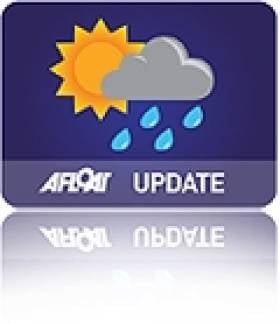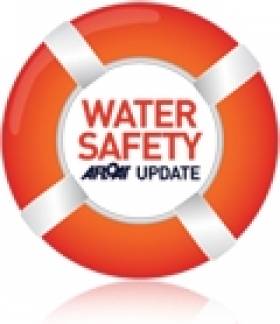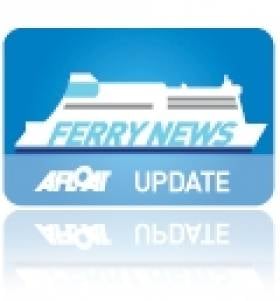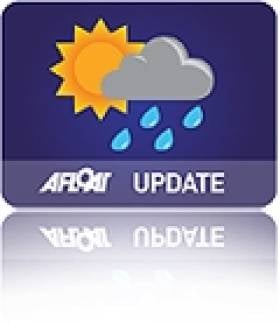Displaying items by tag: Met Office
Marine forecasts now available on Met Office mobile website
#metoffice – UK Marine forecasts are now available for the first time on the Met Office's recently updated and improved mobile website.
Featuring marine observations, shipping forecasts and high seas forecasts, as well as storm and gale warnings, the new Met Office mobile website has the core information needed for mariners all over the UK.
The mobile website is a graphics-light version of the main Met Office web site and includes the following content:
• Marine forecasts and observations
• NSWWS warnings
• UK 5-day forecasts
• UK observations
• Latest Met Office news
• Latest video forecast
• 'Report severe weather' – a link to the mobile WOW site for people to input weather impact information
• Links with social media
Derek Ryall, Head of the Public Weather Service says, "Accurate, consistent and localised forecasts available from all devices – these were the priorities highlighted by mariners. As a result of the feedback we have taken steps to make accessing warnings and forecasts from the Met Office easier than ever before.
"With the new range of improvements to our mobile app, mobile website and main website during the year, mariners will be able to access up to the minute information that will help to keep them safe and prepared whether on or off-shore."
The Met Office is the UK's National Weather Service, providing 24x7 world-renowned scientific excellence in weather, climate and environmental forecasts and severe weather warnings for the protection of life and property. www.metoffice.gov.uk
RNLI Seeks Responses in Sea Safety Advice Survey
#SAFETY AT SEA - How do you use weather forecasts to plan your leisure time on the water?
The RNLI asks all water users in the UK and Ireland to take a quick 10-minute survey by the UK's Met Office.
Its results will help meteorologists and rescue teams to better understand sea users in order to give better water safety advice and save more lives through preventative action.
Take the survey HERE by 3 December.
Going out on the water can be a lot of fun, and is a way of life in coastal communities around the UK and Ireland. But the sea can be an unpredictable and dangerous place.
Taking some simple precautions can make your time on the water even more enjoyable, and reduce your chances of getting into trouble.
The RNLI has an interactive publication, Sea Safety: The Complete Guide, which is essential reading for anyone who finds themselves drawn to the water.
Severe Weather Disrupts Ferry Services
#FERRY NEWS – With travel disruption to some Irish Sea ferry services due to the severe weather conditions battering across the country, the following ferry operator's website links below provide the latest sailing schedules and contact details.
It is also advisable to contact the ferry operator to inquire about the port check-in time prior to setting off. For further information click over each of the route as highlighted below.
In addition to keep abreast of weather warning updates click www.met.ie/ and www.metoffice.gov.uk/
IRISH FERRIES
Central Reservations Tel: 0818 300 400 OR
Rosslare Tel: (053) 9133158
Rosslare-Cherbourg: Sailings have been temporarily suspended due to annual dry-docking of the cruiseferry Oscar Wilde. Sailings resume with the first departure in 2012 from Rosslare on 19th February and the corresponding return sailing from Cherbourg is scheduled for 21st February. For timetable click HERE.
STENA LINE
Tel: (01) 204 77 99 when travelling to Britain OR
Tel: 00 44 (0) 8705 755 755 when travelling to Ireland or Scotland.
Dun Laoghaire-Holyhead Note: the high-speed (HSS) route remains suspended until April or May 2012.
Belfast-Liverpool (Birkenhead)
P&O Ferries
Tel: 00 353 (0)1 407 3434
Larne-Troon. Note: the 'Express' fast-ferry craft operated route is due to re-open in March 2012.
KINTYRE EXPRESS
Tel: 00 44 1586 555 895
Note: FOOT-PASSENGER ONLY fast-RIB craft service which is currently operating to a winter service (October 2011-April 2012) which runs only on Friday's and Monday's.
CELTIC LINK FERRIES
Tel: (053) 916 2688
FASTNET LINE
Tel: (021) 437 8892 OR UK 00 44 (0) 844 576 8831
Note: The Celtic Sea route is due to re-open on 6th April 2012 with a sailing from Swansea.
Hurricane Katia Set to Hit Ireland
"Phenomenal" ocean conditions will be of grave concern to vessels in Irish waters from tomorrow evening as Hurricane Katia makes its approach to Ireland.
As the Irish Independent reports, Met Éireann has considered issuing a severe weater warning today, predicting winds of up to 160kmph and sea flooding on the west coast from Donegal Bay to the Shannon estuary.
On the east coast, winds are expected to reach 130kmph in Dublin on Monday, raising the threat of falling trees and "excessive damage" to property.
The UK Met Office has already taken the rare step of issuing an extreme weather alert for the whole of Ireland.
The category one hurricane is carrying winds of up to 145kmph as it crosses the Atlantic, and is expected to make landfall on the northern half of Ireland tomorrow night.
The Irish Independent has more on the story HERE.

































































